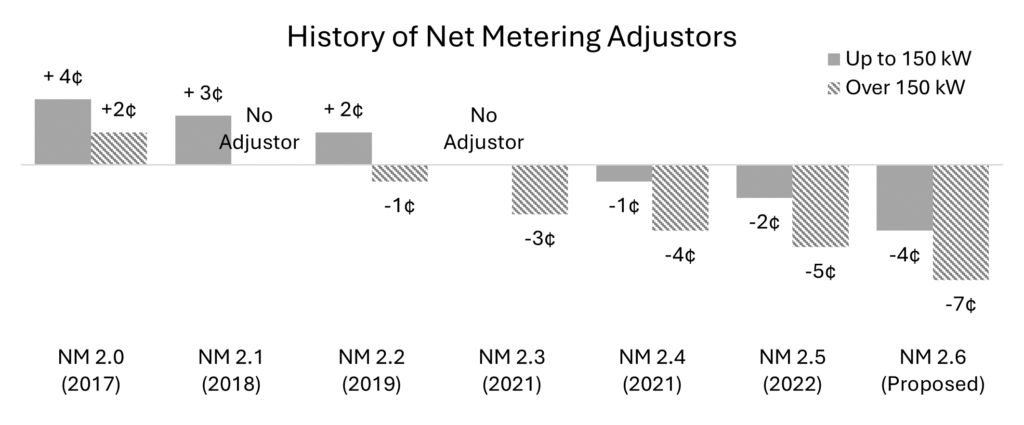Net metering has been Vermont’s most popular and effective program for developing in-state renewable energy. It is responsible for the deployment of three-quarters of the solar capacity in our state. The program works by letting Vermonters with solar at their homes and businesses “run the meter backward” when their panels are producing more energy than they are using and earn bill credits during any month where they send more power out to the grid than they use.
Despite net metering’s popularity, the Public Utility Commission (PUC) – at the recommendation of the Public Service Department (PSD) – has reduced the compensation rate for Vermonters joining the program seven times since 2017 and is proposing to reduce the compensation again starting in July.
Excess power generated by net-metered systems is compensated at the “blended residential rate” with adjustments based on system size/location and whether the system owner retains their RECs or not. Since 2017 adjustors for systems under 150kW have already declined 6 cents/kWh and the adjustors for systems 250kW-500kW (often Community Solar projects) have declined by 7 cents/kWh.

Since the PUC began cutting compensation in 2017, net metering installations have decreased steadily. Simultaneously, solar installations installed outside of the net-metering program have declined even more rapidly, making net-metering even more important. The total capacity of net metering projects applying for a CPG each year has declined by more than 40 MW (62%) since 2017.

The PSD’s rationale for cutting net metering adjustors by 2 cents/kWh in July is that it would save Vermont ratepayer money. The reality is that the proposal would (in the best cases) save ratepayers just 23 thousandths of a cent/kWh or less than $2/year for a household with a 700 kWh/month usage. At the same time, it would reduce the compensation provided to an average residential system by over $4,200 over its lifetime.
It is a proposal that provides negligible benefits and causes real harm. It will slow down net metering deployment at exactly the time when it needs to be accelerating.
